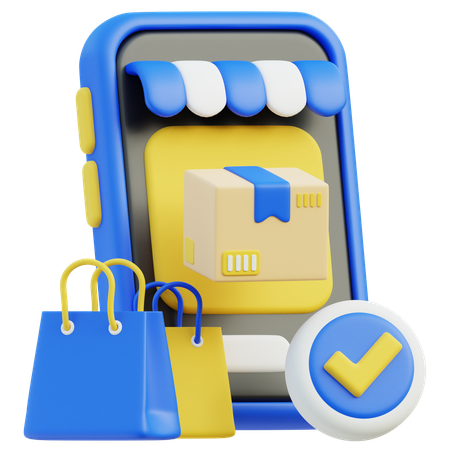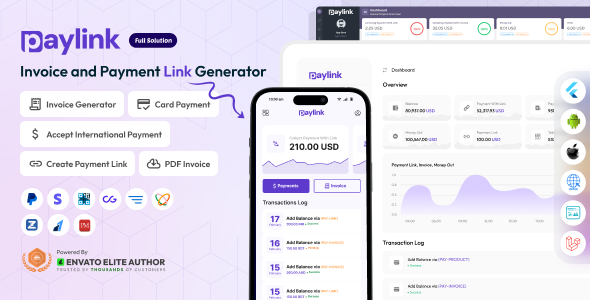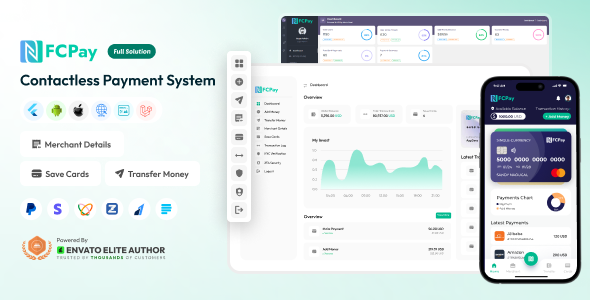Secure and Scalable White-Label Payment Gateway Solutions
Our Payment Gateway Solutions provide businesses with a secure, efficient, and scalable platform for online transactions. Designed for seamless integration, it supports multiple payment methods, ensures regulatory compliance, and enhances customer trust—empowering businesses to accept global payments effortlessly.What Problems Does a Payment Gateway Solution Solve?
Payment Processing Delays
The system ensures quick and reliable transaction approvals to enhance the user experience.
Limited Payment Options
Supports multiple payment methods, including credit cards, e-wallets, and bank transfers.
High Operational Costs
Reduces costs by streamlining payment operations and automating processes.
Fraud and Security Risks
Safeguards transactions with encryption, fraud detection, and PCI DSS compliance.
Integration Challenges
Offers easy-to-integrate APIs and plugins for websites and mobile apps.
Lack of Cross-Border Payment Support
Enables global payments with multi-currency and language support.
Key Features of a Payment Gateway Solution
A comprehensive payment gateway platform should address both the administrative needs of the bank and the functional needs of end users, ensuring a secure and user-friendly experience for everyone.
Administrator Features

Transaction Management Dashboard
Monitor and manage all payment transactions in real time.

Fraud Prevention Tools
Integrated fraud detection and risk assessment systems.

Multi-Currency Support
Handle transactions in different currencies effortlessly.

Reporting and Analytics
Gain insights into transaction trends, revenues, and user behavior.

Customizable Fee Structures
Adjust transaction fees and charges based on business needs.

Compliance Management
Automate compliance checks for PCI DSS, KYC, and AML requirements.
User Interface Features

Fast Checkout Process
Enable users to complete payments quickly with intuitive interfaces.

Secure Payment Options
Provide a variety of secure payment methods, including e-wallets, UPI, and cards.

Recurring Payment Support
Simplify subscription-based models with automated recurring payments.

Multi-Language Support
Cater to diverse customer bases with localized payment pages.

Mobile-Friendly Design
Ensure seamless payment experiences on smartphones and tablets.

Instant Payment Notifications
Notify users of successful transactions in real-time.
How Can Businesses Generate Profit from a Payment Gateway Solution?

Transaction Fees
Earn a percentage or fixed amount on every transaction processed through the gateway.
Subscription Plans for Merchants
Offer premium plans with added benefits like analytics and dedicated support.
Value-Added Services
Provide services like fraud detection and chargeback management at additional costs.
Cross-Border Transaction Fees
Generate income by facilitating international payments with currency conversion.


Steps to Start a Payment Gateway Solution
Launching a payment gateway solutions involves several key steps to ensure smooth implementation and adoption.

Conduct Market Analysis

Choose a Reliable Technology Partner

Obtain Regulatory Approvals

Integrate with Payment Methods

Develop Secure and Scalable Platforms

Launch Marketing Campaigns
Key Requirements for Launching a Payment Gateway Solution
To successfully launch a payment gateway platform, consider these essential requirements
Licenses and Certifications
Ensure adherence to PCI DSS, KYC, and AML standards.
Secure Payment Infrastructure
Set up robust servers, encryption protocols, and fraud detection systems.
Global Payment Partnerships
Collaborate with banks and payment providers for smooth integration.
Merchant Support System
Develop a robust help desk for onboarding and resolving issues.
API and Plugin Development
Offer easy integration options for websites, apps, and e-commerce platforms.
Marketing and Outreach
Promote the gateway to businesses seeking reliable payment solutions.
Built with Leading-Edge Technology
Appdevs is a leading provider of custom financial software development services, catering to a diverse range of businesses within the banking and finance industry.Front-End
![[object Object]](/_next/static/media/next.cb1d90a5.png)
Next.js
Next.js is a popular React-based framework that enables developers to build fast, scalable, and SEO-friendly web applications.
![[object Object]](/_next/static/media/react.89d58278.png)
React.js
React.js is an open-source JavaScript library for building user interfaces.
![[object Object]](/_next/static/media/vue.b105c8ee.png)
Vue.js
Vue.js is a progressive JavaScript framework used for building user interfaces and single-page applications.
Back-End
![[object Object]](/_next/static/media/laravel.bea31879.png)
Laravel
Laravel is a powerful and elegant PHP framework designed for building modern web applications.
![[object Object]](/_next/static/media/nodeJS.5b61e125.png)
Node js
Node.js is a JavaScript runtime environment. Node.js runs on the V8 JavaScript engine.
![[object Object]](/_next/static/media/python.b96758ee.png)
Django
Django is a high-level, open-source web framework written in Python.
Mobile Apps
![[object Object]](/_next/static/media/flutter.e7f646bb.png)
Flutter
Flutter is an open-source UI software development kit created by Google.
![[object Object]](/_next/static/media/reactNative.e1093344.png)
React Native
React Native is a popular open-source framework for building cross-platform mobile applications.
![[object Object]](/_next/static/media/swift.ea425c9c.png)
Swift
Swift is a high-level general-purpose, multi-paradigm, compiled programming.
DevOps
![[object Object]](/_next/static/media/nginx.76aed3a5.png)
Nginx
Nginx is a high-performance, open-source web server, reverse proxy, and load balancer.
![[object Object]](/_next/static/media/apache.2e47b3bd.png)
Apache
The Apache HTTP Server, commonly referred to as Apache, is a powerful, flexible, and open-source web server.
UI/UX Design
![[object Object]](/_next/static/media/figma.6010ec6b.png)
Figma
Figma is a powerful, cloud-based design and prototyping tool that has revolutionized the way designers collaborate.
![[object Object]](/_next/static/media/adobexd.f65e5df9.png)
Adobe XD
Adobe XD is a user experience and user interface design tool developed by Adobe.
![[object Object]](/_next/static/media/sketch.42dd4a93.png)
Sketch
Sketch is a vector-based design tool primarily used for UI/UX design, web, and mobile application design.
Database
![[object Object]](/_next/static/media/mySQL.284661c9.png)
MySQL
MySQL is an open-source relational database management system.
![[object Object]](/_next/static/media/postgreSQL.79bba237.png)
PostgreSQL
PostgreSQL, also known as Postgres, is a free and open-source relational database.
![[object Object]](/_next/static/media/mongoDB.2bc9137c.png)
MongoDB
MongoDB is a source-available, cross-platform, document-oriented database program.
Our Ready-Made Payment Gateway Solutions
This is for businesses looking to launch a payment gateway quickly and cost-effectively. We offer pre-built solutions that are fully customizable and compliant with industry standards.
Why Choose AppDevs for Payment Gateway Solutions?
At AppDevs, we specialize in custom fintech software development, delivering industry-leading payment gateway solutions tailored to diverse business needs.
Quick Deployment
Our solutions are pre-built and customizable, allowing for rapid deployment to meet market demands.

Cost-Effective
By choosing a ready-made product, businesses can save on development costs and focus their budgets on marketing and scaling.

Scalability
Each solution is designed to scale with your business, whether you’re starting locally or expanding globally.












